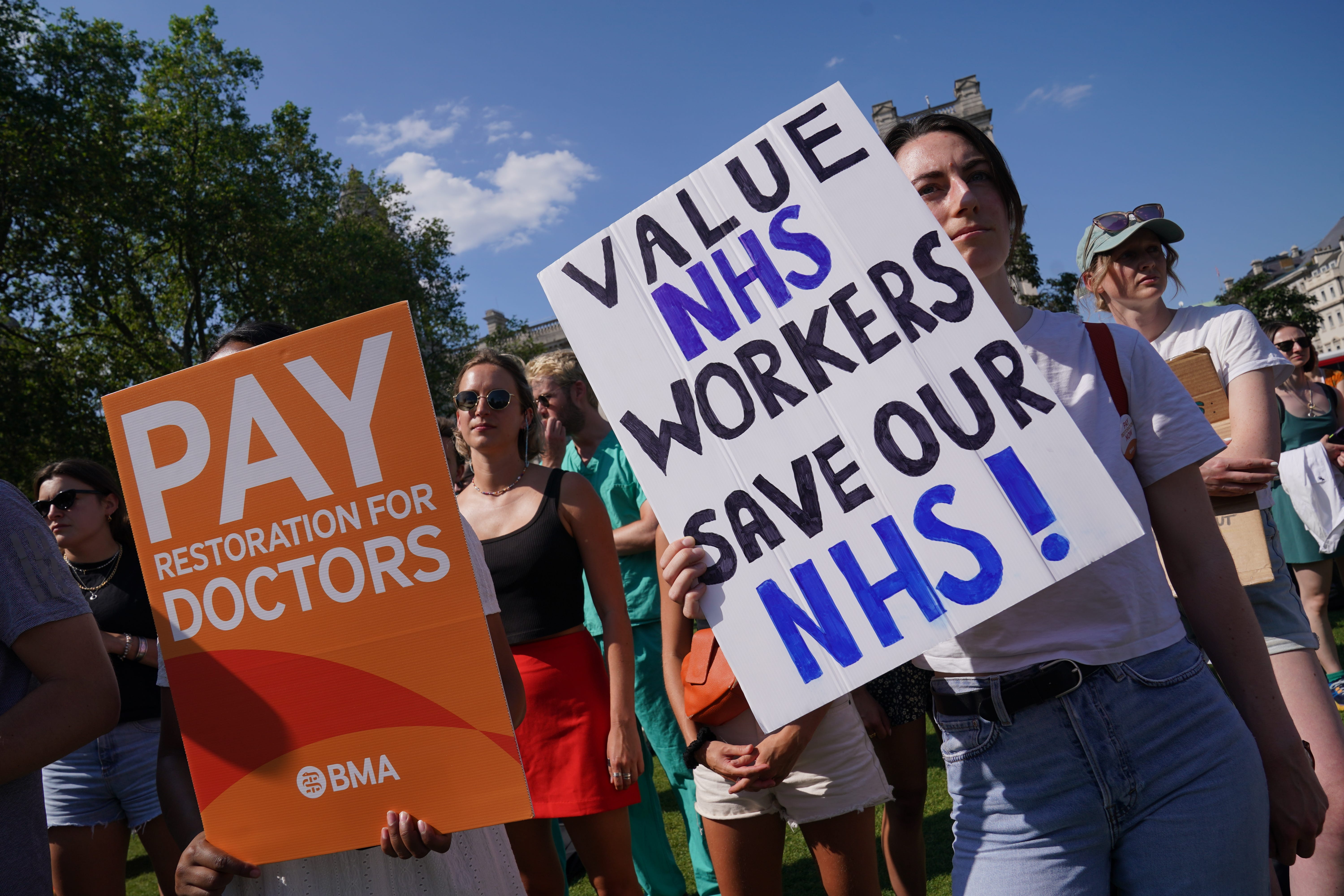Minister refuses to commit to accepting wage recommendations by pay bodies
Social care minister Helen Whately said the Government would ‘consider’ advice given by independent public sector pay panels.

A health minister has said the UK Government would need to “look at what we can afford” as she refused to commit to accepting salary bumps recommended by pay bodies.
Social care minister Helen Whately said only that Rishi Sunak’s administration would “consider” the recommendations put forward by independent public sector pay panels.
“We are in the middle of considering some of the pay review bodies who have already reported back to us,” she told BBC Radio 4’s Today programme.
“Of course the Government will … consider their recommendations and respond after doing that.”
It comes after the Prime Minister said he was willing to make “difficult decisions” as part of his plan to curb stubbornly high inflation, with fears that wage increases could fuel further price rises.
We need to look at what we can afford as a country and we know that we have the big challenge of inflation at the moment
He spoke on Sunday of being prepared to make unpopular short-term decisions on public sector pay to ensure offers were “affordable” and “responsible”.
Mr Sunak has set halving inflation by the end of the year as one of his top priorities ahead of a likely general election in 2024.
But the Consumer Prices Index (CPI) inflation remained at 8.7% in May, despite hopes that it would fall and provide some relief for households.
Ms Whately reiterated the Prime Minister’s call for the Government to be responsible with public finances as it considers wage increases for public sector workers.
Pay review body recommendations are not legally binding on the Government and, although they are typically accepted, ministers can generally choose to reject or partially ignore the advice.
But this would be a controversial move, after the Government defended last year’s below-inflation pay rises by saying they had followed the bodies’ advice.
It could further inflame ongoing disputes with unions and lead to more industrial action, with a looming five-day junior doctors’ strike in England next month an example of one of many pay rows ministers are currently embroiled in.
Ms Whately said she could not “pre-empt” the Government’s response when asked whether ministers would accept pay review body recommendations of “6% plus” wage increases for public sector workers.
“We have to look at pay in the round for the public sector. Clearly, the Government has to make responsible decisions over finances,” she told BBC Breakfast.
“We need to look at what we can afford as a country and we know that we have the big challenge of inflation at the moment.
“The Prime Minister’s number one priority is to bring down inflation because we know that inflation is eating away at the pound in people’s pockets, so it is really important to bring inflation down.”
Ms Whately defended the Government’s approach as “the completely normal process that is carried out every time”, praising the pay boards as doing a “really valuable job”.
Kate Bell, assistant general secretary of the Trades Union Congress (TUC), said any decision to ignore pay review body advice would be “driven by politics, not economics”.
She said public sector wages had fallen “well behind inflation” and that there had been a “15-year wage squeeze where wages haven’t kept up with inflation”.
Speaking to Today, she added: “We had the Government, back in the winter when they were refusing to negotiate with NHS workers — eventually, of course, they did come to the table — relying very heavily on the pay review bodies, saying we had to take into account this independent process.
“It is a bit rich to hear them now saying: ‘Well, we’re going to overturn those independent recommendations’ when we haven’t even seen them be published yet.”
Bookmark popover
Removed from bookmarks